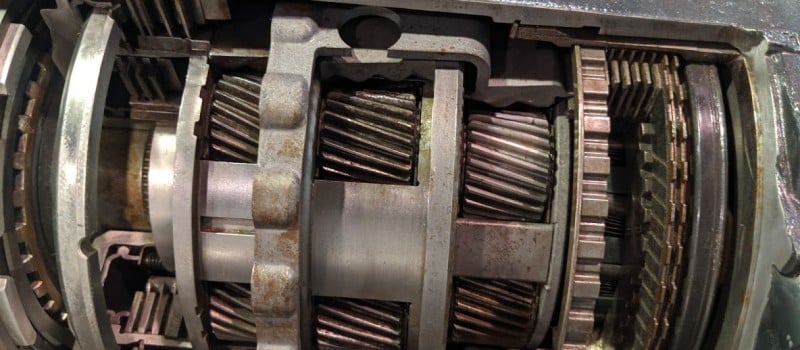2004 Mini Cooper Transmission Continuously Variable Transmission

Have trouble with the transmission of your Mini Cooper? Learn the most common problems and possible solutions to your Mini Cooper's transmission problem.

Hesitating and lurking on acceleration
Older Mini models using a Continuous Variable Transmission have several common issues. One of them is the feeling of hesitation or lurking while accelerating.
In some cases, this will be accompanied by engine speed that is too high while coasting or slowing down. These symptoms will usually be constant, and there will be warning lights or other apparent issues.
Possible causes
- Incorrect TCU software version, with outdated parameters and other values. As this transmission had various issues, engineers at Mini continuously addressed them by developing and improving the TCU software. Using a suitable Mini OBD-II diagnostic tool, check the version, and install the newest one if needed.
- Issues with the battery or charging system cause voltage drops or spikes. If the voltage drops too low while cranking, the gearboxes can reset and undergo a 'learning' procedure. Sometimes, a faulty alternator generates too much voltage, and upset sensitive transmission electronics. Measuring the voltage will reveal any potential issues.
Sudden loss of drive or rattle from the transmission
The Continuous Variable Transmission used in older Mini models is almost notorious for various problems, and sudden loss of drive is probably the most severe. In most cases, the car will drive without any noticeable issues until this happens. A loud bang will sometimes accompany this, and a grinding noise might come from the transmission. There will be a series of check engines and other warning lights.
Possible causes
- The snapped drive belt that connects pulleys inside the transmission is a well-known and documented problem. When this happens, many metal parts and shavings are scattered around, damaging gears and other components. As replacing the whole transmission is the only option at this point, we recommend sourcing a rebuilt or second-hand unit, as the cost of a new one supersedes the price of the whole car.
- NOTE: There are several warning signs about possible upcoming belt failure. When driving, pay attention to noises like rattling while standing at a stop in gear or knocking noises when accelerating from a standstill. In addition, many specialized workshops recommend replacing the drive belt every 60,000 miles.
Delayed gear shift and no TCC engagement
Mini models with a 6-speed automatic transmission, designated as TF-60, can develop several issues with gear changes. Some of the most common symptoms range from delayed or erratic gear shifts and shift flares on accelerations to failures to engage the torque converter clutch.
In most severe cases, some of the clutches may be burned. There will be no other symptoms or warning lights.
Possible causes
- Excessive wear within end plug bores, whose task is to prevent critical pressure loss by capping the bore. With time, they may wear out as a result of movement and flow, allowing the loss of hydraulic pressure. This affects shift quality and upsets gear change patterns. As this is a well-known problem, several upgrade kits are available on the market.
- Worn bores inside the valve body. The resulting pressure drop will cause various shift issues. Replacing the whole valve body is the only solution, but because this is a well-known problem, there are many specialized workshops that sell rebuilt ones.
Delays in gear shifts on accelerations
Newer Mini models equipped with a 7-speed dual-clutch transmission can suffer from gear shift delays when accelerating, resulting in poor and sluggish accelerations. In most cases, this happens when the driving style is harsh and aggressive, only to go away after the car cools down. There will be no other noticeable symptoms or warning lights.
Possible causes and solutions:
- Outdated TCU software version, resulting in inadequate gear shifts. The software that controls shift patterns is under constant development, so ensure you always have the latest version using a suitable diagnostic tool.
If you own a MINI Couper equipped with a BMW automatic transmission, check our BMW automatic transmission troubleshooting guide.
We hope you find the Most Common MINI Cooper Automatic Transmission Problems guide helpful. Check these troubleshooting and repair guides for more help on your Mini Cooper.
Source: https://www.youcanic.com/mini-cooper-automatic-transmission-problems/